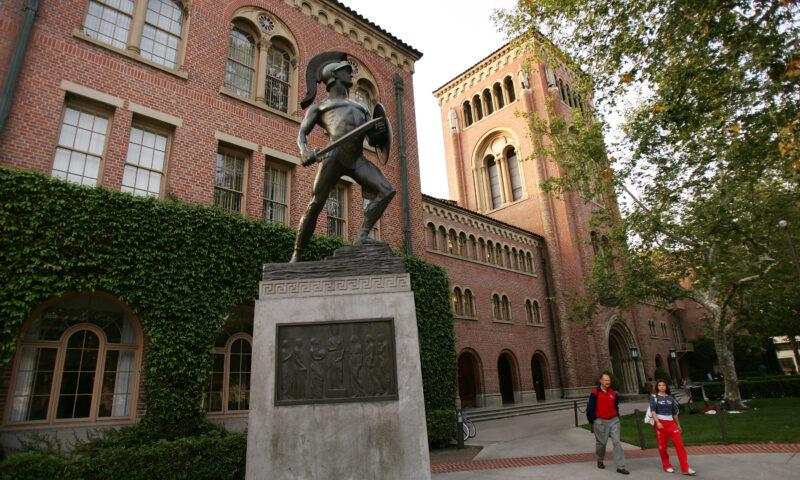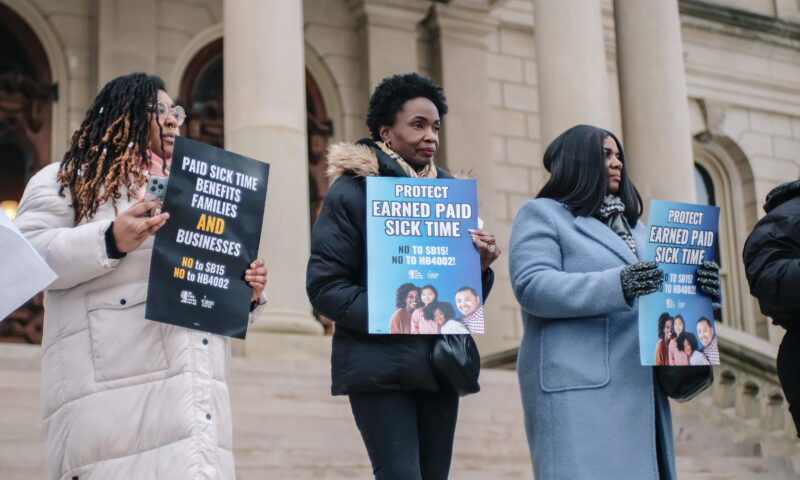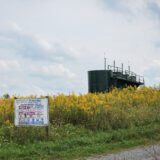Culture & Media
Theater: The Cracks in Robert Schenkkan’s “Wall”
Building the Wall, billed as an urgent call to action, aims to alert people to the ominous stirrings of fascism in the United States. But its heavy-handed polemics and a flawed production run counter to its purpose.

Judith Moreland and Bo Foxworth in “Building the Wall” at the Fountain Theatre. (Photo: Ed Krieger)
Prolific playwright Robert Schenkkan won a 1992 Pulitzer Prize for his series of one-acts, The Kentucky Cycle, and a 2014 Tony Award for Best Play for All the Way, about the efforts of Lyndon Baines Johnson to pass the Civil Rights Act of 1964. He wrote Building the Wall in response to the election of Donald Trump. A National New Play Network rolling world premiere (a program whereby three or more theaters nationwide produce the same work over a 12-month period), it’s billed as an urgent call to action, and aims to alert people to the ominous stirrings of fascism in the United States. But while there’s no disputing the play’s message, its heavy-handed polemics and the production’s flawed execution run counter to its purpose.
The year is 2019 and the setting is an interview room in a Texas prison. Gloria (Judith Moreland), an African-American writer and professor, is interviewing Rick (Bo Foxworth), a white convict on Death Row for a heinous crime whose nature is only revealed later in the play. In response to Rick’s question — “Why are you here? “— Gloria (rather unnaturally) launches into a speech about her experience of endemic racism as a child, how she decided to pursue sociology and psychology, and how she’s driven to understand the motives of people who alter history, such as Rick himself.
The interview then proceeds, more like a deposition in a lawsuit than a dramatic confrontation on stage. We learn that Rick comes from a blue-collar home with an alcoholic dad, that he’s ex-military and saw action in the Middle East, and that he was a security guard at a grocery store before coming to work in a private prison system that’s been operating in tandem with the government to house illegal immigrants before they’re deported. At the end of the questioning, the character emerges as a kind of model for the anti-intellectual, socially anxious individual who, if I recall my Hofstadter, is textbook fodder for the fascist state.
Once you get past the lengthy setup, Schenkkan posits a horror scenario in which the corralling of immigrants in a detention facility escalates, through the callous mismanagement on the part of the government, to catastrophic proportions. As manager of the facility, Rick is called upon to implement an American version of a “final solution.” It’s a scenario some might call unlikely or far-fetched — except that was the widespread reaction to a Trump presidency this time last year, and here we are. So the problem with Schenkkan’s dystopian warnings are not that they are excessive or fantastical, but that they are presented so neatly and tidily that they are drained of power.
While a lot of the problem is in the script (let’s call it a blueprint in need of shading), some of it’s in the staging. For example, the role of Gloria is markedly underwritten, her occasional exposition notwithstanding. Even so, there’s plenty a performer can do to flesh out this kind of role, but under Michael Michetti’s direction, Moreland is content to have Gloria pitch her queries, then react with barely concealed distaste when Rick answers them. It’s a routine portrayal that leaves Foxworth little to play off of. He’s a skilled actor who’s clearly working his arsenal, but between the cliché-ridden script and the stock work of his colleague, there’s not much he can do to make the drama come alive on his own.
One final thought, regarding Se Oh’s set, which situates the performers on an elevated platform. This arrangement means audience members, especially those at floor level, are staring up at the characters, while also missing Foxworth’s expressions when he gazes upward in thought. Since Rick is a character unveiling the potential for the evil in us all, then looking down at him, or at eye-level, seems more in keeping with the story.
The Fountain Theatre, 5060 Fountain Avenue, Los Angeles; Sat. & Mon., 8 p.m.; Sun., 2 p.m.; through May 21. (323) 663-1525 or FountainTheatre.com.

-

 Striking BackApril 10, 2025
Striking BackApril 10, 2025USC Follows Amazon and Musk’s SpaceX in Calling Labor Board Unconstitutional
-

 Latest NewsApril 9, 2025
Latest NewsApril 9, 2025Democratic and Republican Lawmakers Work to Undermine Voter-Backed Wage and Sick Leave Laws
-

 Latest NewsApril 28, 2025
Latest NewsApril 28, 2025A Majority of Californians Support Affordable Health Care for Undocumented Immigrants, Polls Show
-

 Latest NewsApril 11, 2025
Latest NewsApril 11, 2025California Showdown Over Medicaid as GOP Approves Massive Cuts
-

 Column - California UncoveredMay 5, 2025
Column - California UncoveredMay 5, 2025How Did Farmers Respond When the Trump Administration Suddenly Stopped Paying Them to Help Feed Needy Californians?
-

 Column - State of InequalityApril 11, 2025
Column - State of InequalityApril 11, 2025California State University’s Financial Aid Students Learn Chaos 101
-

 The SlickApril 30, 2025
The SlickApril 30, 2025Fracking-Powered Crypto Mine in Pennsylvania Shuts Down Without Word to Regulators
-

 The SlickApril 16, 2025
The SlickApril 16, 2025In Colorado, Gas for Cars Could Soon Come With a Warning Label

